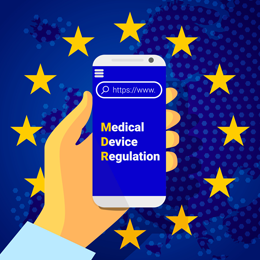Backlog of EU Device Applications Continues to Grow
The European Union’s ongoing struggles with the implementation of the Medical Device Regulation (MDR) are well known, although there are ways to make some of the associated workload more efficient. Nonetheless, a new survey on the status of applications to notified bodies (NBs) suggests that the existing backlog of applications shows no sign of easing, and in fact seems to be growing rapidly.
The survey of NBs ran from April 3 to May 5, 2023, with all surveyed NBs responding as to the volume of applications for quality management system (QMS) certifications and product application certifications under the MDR. One of the more worrisome datapoints in the survey is that as of October 2022, more than 17,000 certificates under the legacy regulation were set to expire by 2024. This includes certificates under both the legacy Medical Devices Directive (MDD) and the Active Implantable Medical Devices Directive (AIMDD). The MDR encompasses all the products previously divided into the MDD and the AIMDD.
In the latest survey, NBs stated that they had processed 1,069 applications for product and QMS certificates by April 2022, with another 6,188 applications on hand at the time. The most recent data show that while the 38 responding NBs had successfully processed a total of 2,951 applications, these NBs still have 11,418 applications for QMS and product applications awaiting action, a near doubling of the backlog in just one year.
The statistics for in vitro diagnostics, which are now regulated under the In Vitro Diagnostic Regulation (IVDR), depict a similar problem. In April 2022, NBs had issued a total of 125 certificates with another 648 applications on file. The latest survey shows that the NBs have successfully processed another 206 applications for a total of 331, but 950 applications are now in queue. The earliest compliance date for these diagnostics under the IVDR is May 26, 2025, with some types of test not needing to successfully traverse the regulation until two years later. For the MDR, the compliance date has been reset multiple times, with May 2027 now the earliest compliance date (for high-risk medical devices).
Applications under the MDR have been turned away by NBs for several reasons, the most common of which is that the application was outside the scope of the NB’s certification (208 refused applications). Another 80 applications have been declined because the application was incomplete, but the most striking metric may be that 31 applications were refused due to a lack of resources for the NB. However, the number of applications declined due to lack of resources is down by roughly half from the 61 such refusals in the October 2022 survey.
Under the IVDR, a total of 49 applications have been declined, seven of which were because the application was incomplete. One was turned away because the application was for the wrong conformity assessment procedure and another two due to the application being for the wrong product qualification or classification. The remaining 39 applications were declined for “other” reasons, including “economic considerations.”
The Medical Device Coordination Group (MDCG) proposed in August 2022 a set of tools to provide at least some efficiencies that may help ease the load on NBs. One of these is a proposal to require a less frequent recertification schedule for NBs, which currently must be conducted three years after the initial certification and every four years thereafter. MDCG had proposed that the first recertification be delayed until five years after the initial certification, with “flexibility” guiding the dates of the subsequent recertifications.
Among the other proposals are the use of hybrid audits of manufacturing sites to provide more efficient conformity assessments and the reuse of evidence from previous assessments of a device. However, the association of EU notified bodies, Team NB, recently published a paper elaborating on the predicament, calling on manufacturers to ensure that their applications are complete prior to submission. Team NB also said while the MDCG proposal is providing some relief from the backlog, there is a critical need for more streamlined approaches to both NB designation and for expansions of NB certifications for additional technological areas.
For additional resources contact the Marketing department
Phone: 888-633-6272
Medmarc is a member of ProAssurance Group, a family of specialty liability insurance companies. The product material is for informational purposes only. In the event any of the information presented conflicts with the terms and conditions of any policy of insurance offered from ProAssurance, its subsidiaries, and its affiliates, the terms and conditions of the actual policy will apply.
Copyright © 2026 - Medmarc
